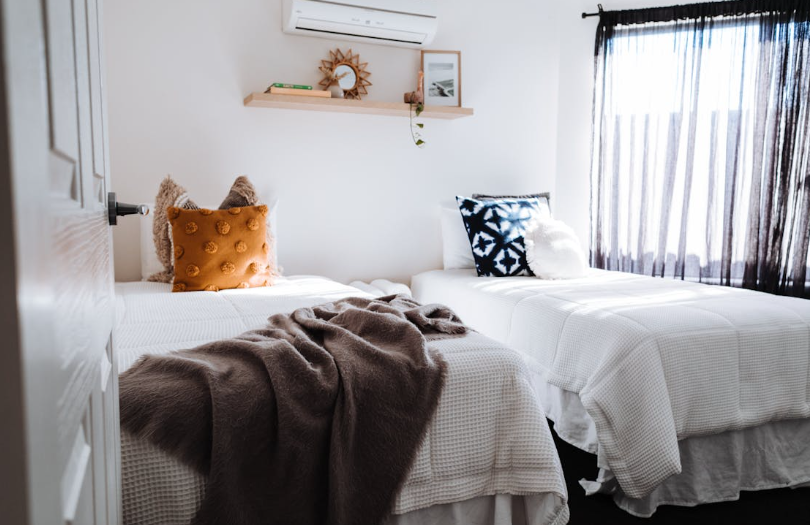
In the comfort of our homes, the hum of an efficient HVAC unit often fades into the background, quietly regulating our temperatures and maintaining a tranquil environment. Yet, when something goes awry, the silence can quickly turn into a cacophony of clanking, humming, or the uncomfortable silence of malfunction. Knowing when to call in professionals for HVAC service can not only save you money in the long run but also ensure that minor issues don’t escalate into major repairs or even full replacements.
The Sense of Sound: Decoding Your HVAC
Your HVAC system might communicate with you in ways that you’ve never considered, such as through the odd noises it makes. Here’s a breakdown of common sounds that signal trouble:
Whistling and Hissing
If you hear your system whistling or hissing, it could be indicative of a clogged filter or leak in the ductwork. This often means your system is working harder than it should, potentially leading to increased utility bills and decreased efficiency.
Banging and Clanking
These loud and irregular sounds are often a sign that something is loose or that a component within the HVAC system is failing. This is a cause for immediate concern since loose parts could lead to damaged components or even further system failure.
Grinding
Grinding noises are a red flag for issues with the motor’s bearings. If the bearings become worn down, further complications can arise within the motor. This is a costly repair if left unaddressed.
Constant Cycling
Your HVAC system should cycle on and off in response to temperature changes. If it’s running consistently without stopping, there may be a problem with the thermostat settings or a more complex issue within the system.
The Nose Knows: HVAC Odors and What They Mean
Odd smells emanating from your HVAC system are not only unpleasant, but they can also be a health hazard. Here’s what some of the most common odors signal:
Musty or Moldy
These smells suggest there’s moisture present in your HVAC system, potentially causing mold growth. It’s essential to have this addressed promptly as mold can lead to respiratory issues and allergies.
Burning or Electrical
An odor of burning plastic or a metallic smell typically signals overheating or an electrical issue. Turn off your system immediately and call a professional.
Rotten Egg or Sulfur
This odor, which can be associated with a gas leak, is a danger sign. If you suspect a gas leak, evacuate your home immediately and call your gas company from a safe location.
Temperature Troubles: Assessing HVAC Functionality
Irregular temperatures in your home can be frustrating, but they can also be a symptom of an underlying HVAC issue. Here are some things to consider:
Inconsistent Temperature
If some rooms are colder or warmer than others, it might indicate a duct blockage or an issue with the damper function.
Slow to Cool or Heat
An HVAC system that takes an unusually long time to reach the desired temperature might be low on refrigerant or have a buildup of dirt or dust on the coils. Both can lead to inefficiency and, in the case of refrigerant, a potential environmental hazard.
System Is Not Producing Heat or Cool Air
When your HVAC system fails to produce any air, it could mean there’s a problem with the thermostat, the motor, or a power issue.
Efficiency Check: Understanding Your Utility Bills
Monitoring your utility bills can provide insight into how efficiently your HVAC system is operating. Look for patterns such as sudden spikes in usage without a corresponding increase in need for heating or cooling.
Higher-Than-Normal Bills
An unexplained increase in your utility bills is a strong indication that your HVAC system is struggling to operate efficiently.
Gradual Increase Over Time
If your bills are steadily rising month after month, it may be a sign that your system is aging and becoming less efficient. Investing in a newer, more energy-efficient model could save you money in the long run.
DIY Diagnosis: What You Can Do Before Calling a Pro
Before picking up the phone to call an HVAC technician, it’s worth running through a checklist of simple diagnostic tasks. Here’s a quick rundown:
Check Your Thermostat Settings
Ensure that your thermostat is set to the correct mode (heat, cool, or auto) and that the desired temperature is programmed correctly.
Replace Your Air Filter
Dirty air filters can cause a myriad of issues in your HVAC system. Check the filter and replace it if it’s clogged or dirty.
Clean Around Your Outdoor Unit
A clear space around the outdoor unit is necessary for proper airflow. Ensure there’s no debris or plant overgrowth hindering the system’s operation.
Unclog Drain Lines
Blocked drain lines can lead to leaks and reduce the system’s ability to dehumidify. Use a mixture of water and vinegar to clear the lines if there’s evidence of blockage.
Inspect Air Vents and Returns
Make sure all air vents and returns are open and unobstructed. Closed or blocked vents can lead to pressure imbalances within the system.
When to Call in the Pros
After going through your checklist, if you still experience problems, it’s time to bring in HVAC professionals. Here are some definitive signs it’s time to call for expert help:
Lack of Experience or Knowledge
If you’re simply not confident in your ability to diagnose and fix HVAC issues, don’t risk making matters worse. A professional HVAC service like BJ Heating & Cooling will have the expertise necessary to assess your system effectively.
Persistent Problems
If you’ve had to address the same HVAC issue multiple times in a short period, it’s likely there’s an underlying problem that requires professional attention.
Safety Concerns
Any time you suspect a safety hazard, such as a gas leak or electrical issues, it’s critical to shut down your HVAC system and call for help.
Regular Maintenance: The Best Defense Is a Good Offense
To minimize the risk of unexpected HVAC failures, regular maintenance is key. Consider scheduling an annual check-up with a professional to keep your system in top shape.
Change Your Air Filter Regularly
Most HVAC systems recommend changing the air filter every 1-3 months, depending on factors like household size and pet dander. A clean filter ensures proper airflow and reduces strain on the system.
Keep the Area Around Your Units Clean
Both the indoor and outdoor components of your HVAC system should have a clear space to function efficiently. Regularly check and clean the area around your units as part of your home maintenance routine.
Schedule Professional Inspections
An HVAC professional can detect and address minor issues before they become major problems. Think of it as an annual check-up for your HVAC system’s health.
Being attuned to your HVAC system’s performance and recognizing the signs of trouble is crucial for maintaining a comfortable and functional home environment. By familiarizing yourself with potential issues and their common indicators, you can not only prolong the life of your system but also ensure that when it’s time to call in the professionals, you’ll do so with confidence and a clear understanding of the problem at hand.


